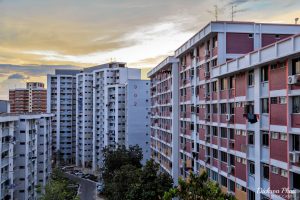Migrant domestic workers in Singapore continue to face various kinds of emotional abuse, despite growing legal protections against more visible forms of sexual or physical abuse, a migrant worker advocacy group claims in a new report.
In a report released this week, the Humanitarian Organization for Migration Economics (HOME), a Singapore-based group that advocates for the rights of migrant workers, documented the “invisible wounds” that employers often inflict on domestic workers, many of them migrants from the Philippines.
The reports states that while emotional abuse “tends to be considered less serious” than physical or sexual assault, it “involves a serious and pervasive pattern of behaviors” that can result in depression and anxiety. Since this kind of abuse is by its nature “non-physical and might not produce the kinds of tangible, material or visible ramifications that other types of abuse like physical and sexual abuse may,” it is also much harder to identify and, in extremis, prosecute.
HOME’s report, a follow-up to earlier research into forced labor and mental well-being among Singapore’s migrant domestic workers, was based on extensive focus group discussions with 22 migrant domestic workers who resided at HOME’s Singapore shelter in 2019, the majority of them from the Philippines. The report also draws on data on around 1,800 other cases gathered by the organization between 2019 and 2021.
It argues that emotional abuse can include some or all of the following: threats, intimidation, and insults; social isolation, surveillance, and the invasion of privacy; and disrespect toward the worker’s position as an employee, which can inculcate feelings of embarrassment and powerlessness.
The 56-page report offers granular details about the daily challenges faced by migrant domestic workers. One employee interviewed by HOME was belittled by her employer, who constantly told her that “you are just a maid” and said that if she tried to go back to the employment agency, they would send her back to the Philippines.
Another was kept under watch by an elaborate system of CCTV cameras, including one in the room that she slept in, and forced to work 16-hour days. This worker, the report states, “felt really uncomfortable knowing that the camera was in the room and that her privacy was being violated, with her employer watching her every action.” HOME states that the use of CCTV cameras to spy on domestic workers has become a “common practice” in Singapore.
HOME and other advocacy groups have long documented the extent to which Singapore’s foreign migrant workers – who play an integral but oft-forgotten role in the sustaining the city-state’s sheen of gleaming modernity – are subject to labor rights abuses and exploitation. This is especially the case with women who are employed as domestic workers or nannies, who often live with their employers and whose treatment and working conditions are therefore much harder for labor advocates to monitor.
An earlier HOME report argued that the work of foreign domestic workers in Singapore, who earn in the range of S$300 (US$215) and S$400 (US $287) per month, is “largely invisible and unregulated,” and that their plight is mostly “invisible in the private sphere of their employers’ households.”
“When MDWs face emotional abuse, they are particularly vulnerable victims who exist in a dependent relationship with their perpetrators with limited means of escaping, or altering the circumstances of their situation,” the report states.
At the root of these cases, HOME argues, is a stark power imbalance between employer and employee, and that Singapore needs to extend its current legislative protections to encompass these less obvious forms of mistreatment.
“When domestic work and the individuals who perform them receive adequate legislative protection,” it states, “attitudes and perception towards domestic work will invariably change and instances of emotionally abusive behavior will be minimized.”

































